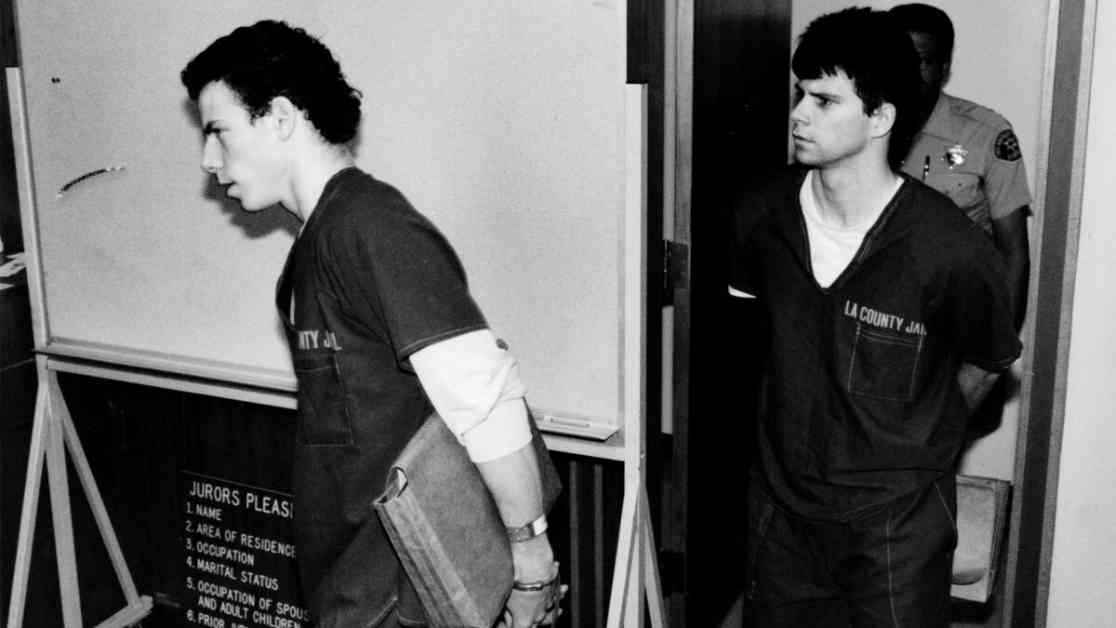District Attorney Nathan Hochman recently made headlines by opposing the resentencing bid of Lyle and Erik Menendez, who were convicted of murdering their parents in 1989. The brothers, who have spent three decades behind bars, were recommended for resentencing by former District Attorney George Gascón, who suggested reducing their sentences from life without parole to 50 years to life. This change could potentially make them eligible for parole as youthful offenders due to committing the crime before turning 26. However, Hochman filed a motion in the Los Angeles Superior Court to challenge Gascon’s recommendation, presenting a detailed analysis that paints a less sympathetic picture of the brothers and raises doubts about their claims of self-defense.
During a news conference, Hochman emphasized that the brothers have maintained a web of lies for over 30 years, particularly regarding their assertion of self-defense on the night of the murders. He highlighted their elaborate alibi and attempt to shift blame by falsely claiming the killings were Mafia-related. Hochman’s motion delved into evidence of premeditation and the brothers’ efforts to cover up their actions, casting doubt on the validity of their defense strategy.
The tragic events of 1989 saw the Menendez brothers purchasing shotguns with cash, entering their Beverly Hills home, and brutally shooting their parents while they were watching a movie. The prosecution contended that Jose Menendez was shot multiple times, including in the back of the head, while Kitty Menendez crawled wounded before the final fatal shots were fired. Erik, who was 18 at the time, confessed to the murders to his therapist, leading to their arrest and subsequent trial.
Throughout the legal proceedings, prosecutors argued that the brothers committed the murders to gain access to their parents’ substantial inheritance. In contrast, the defense team argued that the killings were a desperate act of self-defense following years of violent sexual abuse by their father. Despite these claims, the brothers were convicted of first-degree murder and sentenced to life in prison without the possibility of parole.
As the Menendez brothers seek various avenues for potential freedom, including clemency, resentencing, and habeas corpus petitions based on new evidence challenging the prosecution’s narrative, the case has garnered widespread attention. A key piece of evidence highlighted in a 2023 filing pointed to a letter penned by Erik Menendez to his cousin detailing years of abuse, along with allegations from a former Menudo band member claiming abuse by Jose Menendez. Hochman’s stance against granting a new trial centered on the assertion that the sexual abuse allegations did not justify the murders as self-defense, emphasizing the need for imminent fear of harm to claim self-defense.
While Hochman has refrained from completely ruling out resentencing the brothers, he has indicated a forthcoming review of the matter. Governor Gavin Newsom’s directive for a risk assessment investigation by the state parole board adds another layer of complexity to the Menendez brothers’ quest for clemency. The family’s plea for their release has been met with resistance from Hochman, whose handling of the case has strained relations with the Menendez family and their advocates.
Last month, concerns were raised when Hochman demoted and reassigned the attorneys advocating for the brothers’ resentencing under Gascón’s tenure. This move led to a notice of claim filed by the attorneys, alleging retribution from Hochman due to ideological differences. Tamara Goodell, a cousin supporting the brothers’ release, lodged a complaint against Hochman, accusing him of violating her rights as a victim and displaying a lack of empathy during a meeting with the family.
In her letter, Goodell called for Hochman to be reprimanded, the removal of Kathy Cady from the case due to potential conflicts of interest, and the intervention of the attorney general for impartiality. The complaint underscores the emotional turmoil and legal complexities surrounding the Menendez case, shedding light on the intricate dynamics between victims, prosecutors, and the pursuit of justice. While the family’s plea for intervention may face legal hurdles, it underscores the enduring impact of a decades-old tragedy that continues to grip public attention and legal scrutiny.


